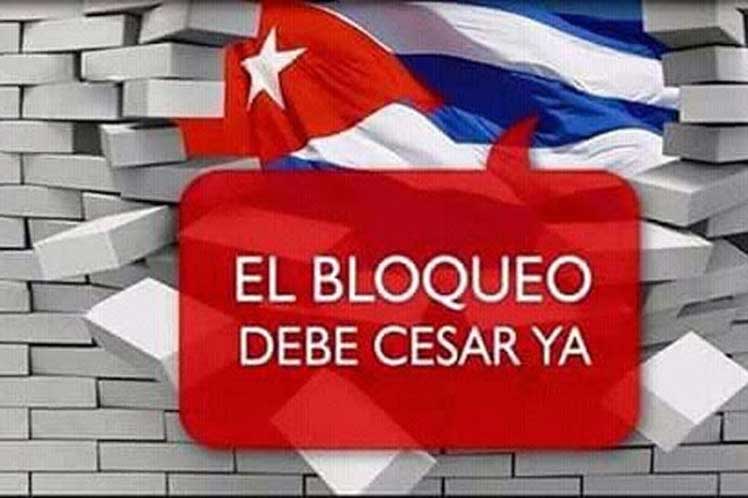Havana, Cuba: It will never be known how many companies that wanted to invest in Cuba stopped doing so due to the US economic blockade, which until today has cost billions of dollars to the country.
That was stated by the director of Trade Policy with North America at the Ministry of Foreign Trade and Foreign Investment (Mincex), Mariluz B’Hammel, who told Prensa Latina that all the measures of the North American siege have repercussions on the entry of foreign capital to the Caribbean nation.
To develop a business on the Island, investors have to face challenges such as difficulties in importing supplies and not being able to use the dollar in international markets, with the additional costs involved in currency exchanges, she explained.
“We have had the opportunity to exchange with businessmen from other countries, including the United States, and many of them are surprised when they are closely touched by some of the measures of the blockade, with its extraterritorial scope?, she commented.
In that sense, she pointed out that one of the most vivid experiences for them is when they are going to carry out a bank transaction and the financial entity where they have their accounts, and with which they have always worked, tells them that it is not possible to carry out the operation for Cuba.
This is the result of the intimidating effect of Washington’s policy towards the Caribbean nation, in particular the sanctions and fines that the US Treasury Department has imposed on so many banks and companies around the world for years, she added.
B’Hammel also referred to the obstacles posed by the ban on importing products into the country with more than 10 percent content of US origin.
“In today’s globalized world, where any production has elements of different origin, whether in raw materials, supplies, components… it is almost impossible to meet that requirement, which restricts the market area to which Cuba has access both for imports as well as for exports?, he added.
The Mincex specialist specified that for purchases this is a permanent obstacle, because to export to the island a product with more than an approved percentage, you must have a license from an agency of the United States Government, and the will is that this does not happen. .
Added to this is the full application of the Helms-Burton Law, a rule that emerged in 1996, just after the approval of the Cuban Foreign Investment Law, and whose purpose is to hinder the entry of foreign capital even more.
In particular, the directive alluded to Title III of the legal body, which was in moratorium until 2019 and opens the possibility of establishing lawsuits against those who “traffic” with properties nationalized by Cuba, “a very misleading term and far from any criterion of legality” , which also has a deterrent effect.
Despite everything, she assured, the Caribbean nation has not sat idly by and now more than ever is committed to attracting greater flows of foreign investment, with various initiatives and the search for solutions to the internal difficulties that are hampering the process.
In this regard, she highlighted that the portfolio of business opportunities in the country is a reflection of the growth of the sector, since each year the options increase.
The current one has 678 projects in the priority branches of the economy, 175 more than in 2020, and with more than 12 billion dollars for investment.
B’Hammel commented that in this edition the proposals with smaller amounts stand out, with the intention of opening the space to a greater number of potential investors, including Cubans residing abroad.
She added that they work intensely so that the projects are generated from the local level, which also has expression in the current business portfolio.
Another aspect that denotes the will to advance in this area is the creation of the Single Window for foreign investment, a gateway for those who want to bet on the country and where they receive information, advice and support in the process, said the specialist.
Also the Mariel Special Development Zone, a strategic enclave, close to ports of several countries and with infrastructure conditions for the establishment of industries, which despite the discredit campaigns has grown in recent years, she limited her.
As reported to the Cuban Parliament in December by the head of Mincex, Rodrigo Malmierca, there are currently 302 businesses in the nation with foreign capital, of which 104 are joint ventures, 54 completely foreign-funded entities and 144 international economic association contracts, mainly in tourism, energy, food and food industry.
Despite the Covid-19 pandemic and the intensification of the United States blockade, in the last two years 47 new businesses have been approved, proof that the business community trusts Cuba, the minister remarked.

